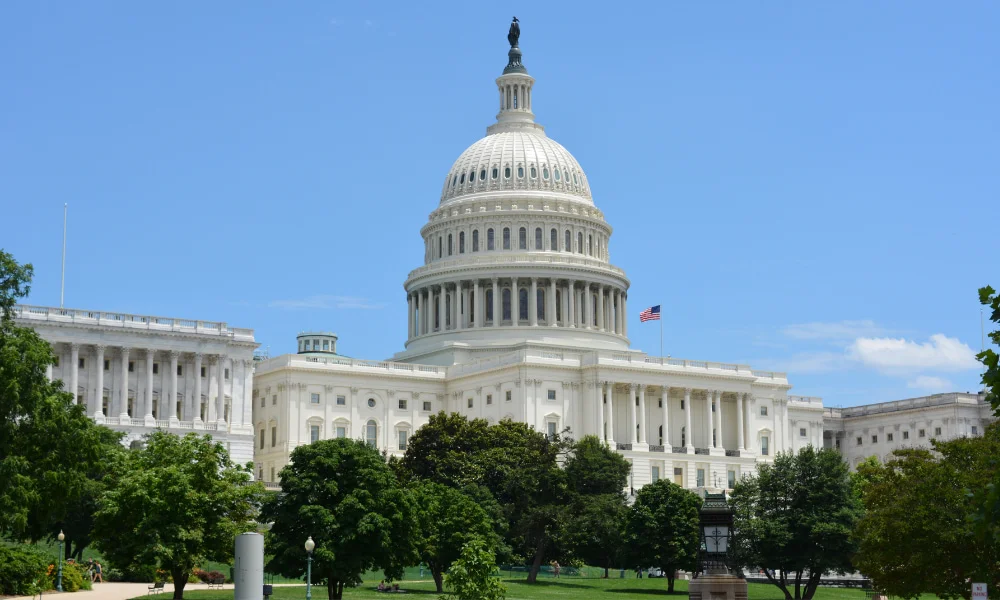Further Consolidated Appropriations Act (FCAA) 2020: Changes You Need To Know About

There are a lot of governmental plans and shifts that regularly occur without a lot of explanation. Most don’t impact the average American, but such moves can become slightly more frustrating or confusing when they begin to impact everyday business operations and companies’ bottom lines. Shutdowns are one of those things.
The good news is that there are measures being put in place to minimize disruptions from government shutdowns, prevent them from occurring in the first place, and make the reasons for those closures more transparent. Here’s everything you need to know about the Further Consolidated Appropriations Act (FCAA) and recent adjustments to it.
What is the Further Consolidated Appropriations Act?
The U.S. Congress signed the 2020 FCAA into law in December 2019 to help the federal government avoid a shutdown. Here are a few helpful facts about the Act that clear up its purpose and intent:
- It provided details on how the government distributes funding across federal departments and programs.
- It extended and changed tax provisions that apply to many small- and mid-sized businesses.
- Tax incentives that expired or were set to expire were brought back, making them effective retroactively for 2018 and 2019 through 2020.
- The Act created extender provisions and the 2019 Setting Every Community Up for Retirement (SECURE) Act, which includes incentives for retirement savings.
- In addition, it provided funding details on disaster relief for employees.
Each of these measures intends to help the small- and mid-sized companies thrive in everyday situations, especially in the event of unexpected disruptions.
How the FCAA Impacts Business Operations
There have been a lot of questions about what the FCAA means for companies. The short answer is that it provides them with benefits they may not otherwise have been able to offer their employees, including options for retirement. It also reduced some of the burden for employers, making the situation a potential win-win for both sides.
1. Retirement Plan Incentives and Tax Changes
The FCAA altered a few important details for employee retirement plans. First, the employer credit for establishing new retirement plans changed, increasing from $500 to $5,000. That means:
- Small businesses can now offer employees retirement plan packages from pooled retirement plan providers.
- Multiple employer plans (MEPs) are managed by two or more unrelated employers.
- The SECURE Act removed restrictions related to managing MEPs, so smaller employers can access more investment options and share administrative costs with other MEP members.
The FCAA also changed the age for required minimum distributions:
- The age changed from 70½ to 72.
- People over 70½ can now keep contributing to their IRAs.
- Individuals who have a new baby or adopt a child can now take out up to $5,000 from their retirement accounts without facing a penalty.

The Cadillac Tax was also repealed under the FCAA.
- This tax previously applied to businesses that offer health plans that cost more than $10,200 for individuals and $27,500 for families.
- The medical device tax was also repealed (which was 2.3 percent), as well as the health insurance tax.
These changes could have big impacts on your company’s retirement plan approach. It may be eligible for the increase in employer credit or have more flexibility in what it offers employees in their retirement plans.
2. FCAA Disaster Tax Relief
The FCAA also provides personal disaster tax relief for those who survived federally declared disasters. This went into effect January 1, 2018, and covers up to 30 days from enactment. Here are a few things to keep in mind about this relief:
- It eliminated the previous requirement that the personal casualty loss must be more than 10% of adjusted gross income.
- Taxpayers are no longer required to itemize their deductions to get this relief.
- Before the act, qualified disaster retirement distributions warranted a 10 percent early withdrawal penalty, but this has been forgiven under the act.
- There is additional flexibility if people had to take out loans from their retirement plans because of a hurricane.
Employers could also be eligible for an employee retention credit of 40 percent of the qualified wages paid to an employee when the business could not operate because of a natural disaster.
3. Other Notable FCAA Provisions
The FCAA comprises more than $426 billion in tax cuts for businesses and individuals, which means there are other provisions that could apply to your company.
A tax on transportation and parking benefits for employees that impacted nonprofit organizations — and was included in the Tax Cuts and Jobs Act (TCJA) of 2017 — was repealed, for example. These expenses were not deductible for commercial businesses under the TCJA and were difficult for nonprofits to pay. The parking tax was repealed retroactively back to the TCJA.

Other significant changes include renewals of:
- New Markets Tax Credit
- Work Opportunity Tax Credit
- Tax credit for employers who offered paid family medical leave
- Tax credit for craft beverage manufacturers
Some changes could positively impact your business, but only if you know the facts. It’s important to understand everything that’s changed with the FCAA so you can make sure your business remains in compliance with it and avoids unnecessary penalties.
Ensure Your Business Is Compliant with FCAA Guidelines
Changing regulations can be confusing, which is why you need qualified tax attorneys you can call whenever a question arises. Don’t try to navigate these new guidelines on your own!
The experienced attorneys at Silver Tax Group can help you understand tax laws that apply to your business and advise you on how to meet compliance requirements. We’re always up to date on the latest changes to legislation, too, and can help you find comprehensive solutions for your accounting, tax planning, and more.
Contact Silver Tax Group to talk with one of our qualified tax attorneys today.





Free Consultation 24/7
Chad Silver
Attorney

Silver Tax Group Locations


777 South Flagler Drive
Suite 800 – West Tower
West Palm Beach FL 33401

4005 Guadalupe St
Suite C
Austin, TX 78751


